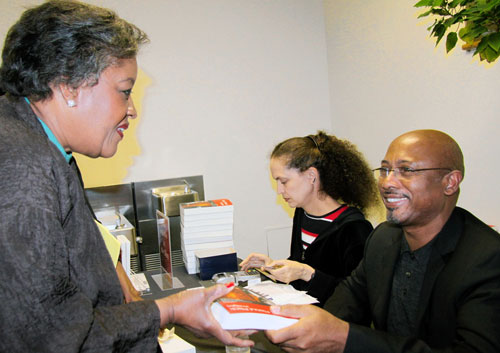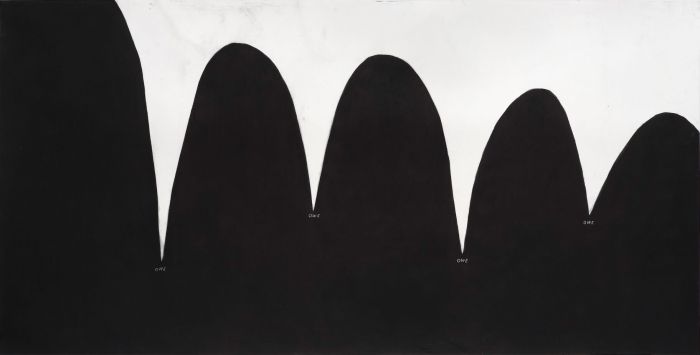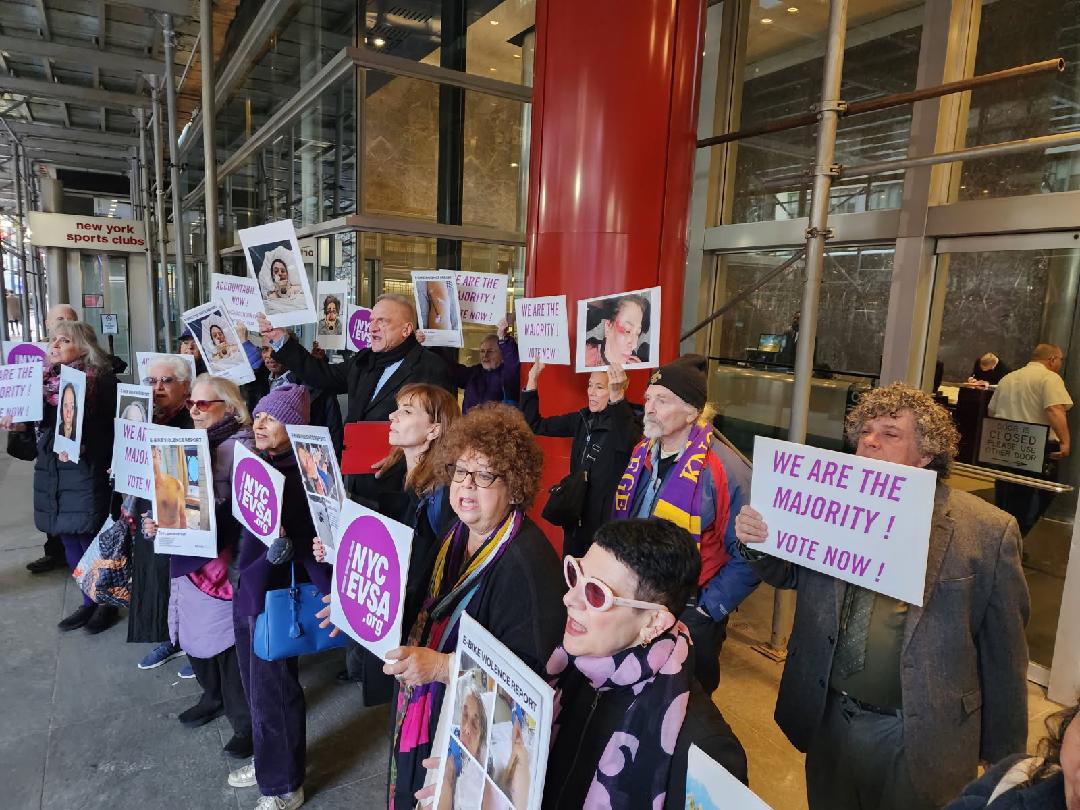Filmmaker Raoul Peck and Didier Sylvain conversed in an intimate gathering room at the Schomburg Library on March 17, discussing film and life. The specific occasion bringing these two together was the book launch of Peck’s “Stolen Images,” four published screenplays – translated into English – of seminal films by the filmmaker. Peck has 11 full-length features and documentaries in his credits.
Peck spoke about growing up watching films with always that slight disconnect; he could never quite see himself in the films he watched. It is this driving force that motivates his subject matter.
“I had no real model for the kind of film I would make, at least none that described the world I saw around me,” he says of his first film “Haitian Corner” (1988), the first in the book. Peck made the film while still a student for $150,000, on location in Brooklyn and filmed it in Kreyol. At that time, there were no black directors he could identify with; black actors were typecast. “I had to uncode our own cinema, invent it out of whole cloth,” he writes.
The title of the book is meant to convey the same idea, “stealing images” that didn’t exist.
Then there is Peck’s personal history, a history of uprootedness and culture shocks. His films seize reality and grapple with it. In the book’s forward, French director Bertrand Tavernier suggests Peck is an eternal exile though not seeing himself as one. He left Haiti at age nine – returning 25 years later – to Africa, then to the U.S., to France, and film school in Germany.
From age nine, he grew up in the Democratic Republic of Congo, his father a francophone academic, like many Haitians recruited under the newly independent country in 1961, teaching agriculture. His years there provided fertile ground for “Lumumba: Death of a Prophet” (the documentary, 1991) and the 2000 feature film “Lumumba,” the film, which fixed Peck’s place in internationalist cinema. “Stolen Images” contains these two screenplays.
“The Man By The Shore” (1998), the first Haitian film ever to be screened in theaters in the United Sates and the first Caribbean film ever entered into competition at Cannes Film Festival, rounds out this compilation published by Seven Stories Press.
During the conversation, when asked if he was an activist, Peck was unequivocal. “I don’t consider myself an activist, I consider myself a ‘citizen.’” And, he believes there is a lot of responsibility that comes with being a citizen.
Peck told those gathered that he has the rights to a film on James Baldwin as he mentioned others– Ray Charles and Nina Simone, he’d like to see brought to a greater audience.
Of Peck’s latest film “Moloch Tropical” (2009), about particular former leaders in Haiti, he said how its subject, power and men and women ‘s reaction to it, resonates worldwide. At screenings, in countries from Australia to Scandinavia, audiences have identified with the subject matter, he said.
Peck screened the film, the day before in the Boston area, yet to screen in Haiti. There are no longer any operating cinemas in Port-au-Prince, Peck told the audience. He has a foundation with a goal to restore and reopen one of the former cinemas.
Peck is currently the president of the French National Film School in Paris and is finishing his post-Haitian earthquake documentary, “Billion for Refoundation.”
























